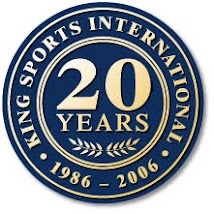If they can’t catch and pass there is no value in teaching them how to wrestle!
The young athlete was receptive and hard working, a pleasure to work with. It was his first speed session with me, and it really did need it! We went through a series of basic drills relevant to his need and it was apparent they would really help with his specific sport, a running power sport.
Towards the end we engaged in a time-tested staple of speed development, starts from on the ground. It was really challenging for him however he was fully committed. How did I judge this commitment? By the way he fell to the ground a number of times shortly after the start. Now I always warn the new athlete that this may occur and encourage them that if that happens it is not only okay, but that it means they are committed.
As we got to the end of the session he spoke candidly about the obvious limit in his ability to accelerate up from off the ground. “We have a martial arts coach come in to coach us, and he has told us that you should stand up first then run.” Perhaps explaining why he had been so challenged in the last drills.
I took the time to explain the benefits in transfer to his sport from being able to accelerate from a low body position.
At the same time ruing the popular trend of bringing in an ‘advisor’ coach from another sport because something concluded that this was help the athlete in a different sport. Take wresting for example. This is a out-of-sport skill that is being taught to Australian rugby codes in a ‘must-do’ way, spreading down to even athletes in primary school.
Yes, you could find 101 ways to justify how skills from another sport could transfer into any particular sport. What is missing is the discernment in coaching decisions that reflect the wisdom to know what to bring in and when.
Here’s a hint – if an athlete can’t catch and pass, and is in a hand-eye coordination sport – there is little justification for them learning non-specific skills such as wresting. That’s just one simple example. And when coaches do choose to import ‘advisors’ from other sports, ideally select one that through experience measured in success they have a high level ‘feeling’ for the specific skills and movement patterns in the sport they are advising to!
In summary, you don’t have to follow the trend of importing advisors from other sports. And if you do you need to review and reflect on the accuracy of the 'advice' they are giving. You can and should make your own mind up about their relevance at any given time of your athletes progress!
Subscribe to:
Post Comments (Atom)




No comments:
Post a Comment